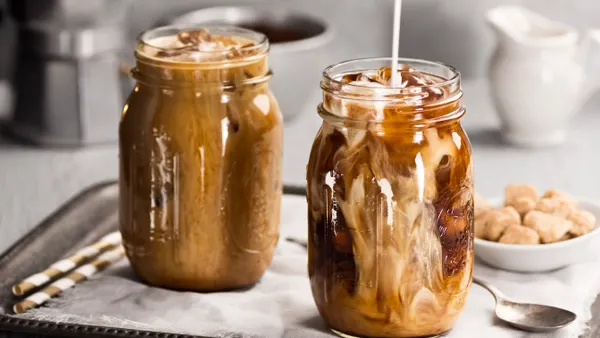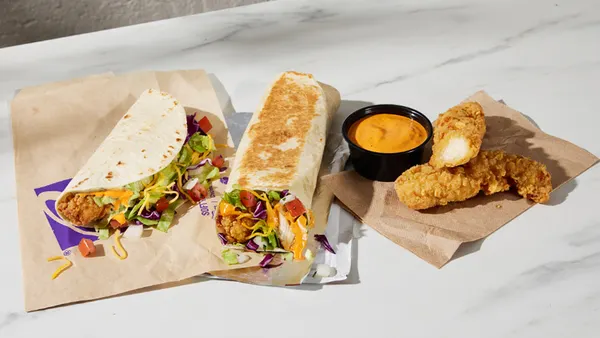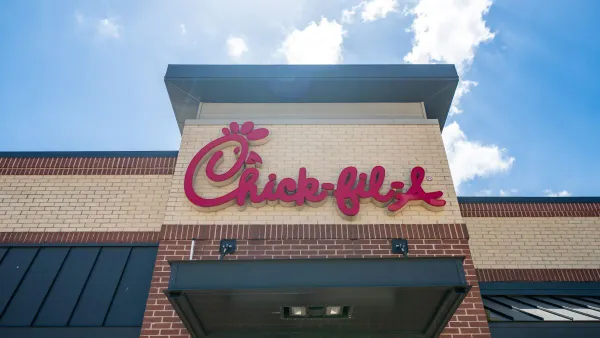SILVER SPRING, Md. — As hundreds of people packed into an auditorium at the U.S. Food and Drug Administration's first public hearing on cannabis and CBD Friday, the marathon event generated emotional pleas on both sides of the debate and left plenty of unanswered questions.
Although it is technically illegal for CBD to be added to food and beverages, it hasn't stopped companies from adding the ingredient to everything from beer to jelly beans and ice cream to iced tea. But the FDA's top official kicked off the 10-hour hearing just outside of Washington, D.C., saying he still isn't sure how safe cannabis is for humans.
"There are real risks associated with [THC and CBD] and critical questions remain about the safety of their widespread use in foods and dietary supplements," Ned Sharpless, FDA's acting commissioner, told the audience. "While we have seen an explosion of interest in products containing CBD, there is still much that we don't know."
From government officials and lawyers pitching the need for a regulatory framework to tearful mothers claiming that marijuana has made children suicidal to retailers asking for legalization and safety controls, the positions from more than 100 speakers provided fresh evidence why the decision on whether to allow CBD-laced foods and beverages to be sold legally is so challenging and controversial.
Despite their differences, most agreed on one issue: FDA action needs to be taken soon.
While the uncertain regulatory atmosphere has created confusion in the market, Friday's hearing was just the first step in what could be a yearslong process to establish a legal path to market for CBD products.
Brian Sylvester, special counsel at Foley & Lardner, told Food Dive before the hearing that in the short term, the FDA could issue a policy statement that says if a company is marketing food or dietary supplements with compounds like CBD and it is derived from hemp, which is legal now because of the Farm Bill, then they will not take action. This would give manufacturers more regulatory certainty. But ultimately, the FDA could go through the rulemaking process which would take at least two years, Sylvester said.
"Based on consumer demand, FDA has recognized that consumers are looking for these types of products in the marketplace and they are willing now to work with industry stakeholders to develop a predictable and lawful pathway to market these products," he said.
What does the food industry want?
Retailers, manufacturers and consumers at the hearing argued that CBD products are increasingly launching into the market, sparking mass confusion about regulation. Manufacturers urged FDA to step in and find a way to lawfully regulate the ingredient in food.
Betsy Booren, senior vice president of science and technology at the Grocery Manufacturers Association, said the public meeting is a good first step for stakeholder engagement. She said GMA supports a transparent regulatory process, including a comment and rulemaking period, to ensure that everyone has an opportunity to provide insight.
"As consumers interest for food and beverage, personal care and household products containing cannabis and cannabis derivatives continues to grow, the necessity for national uniform regulatory frameworks that protect public health is of critical importance," Booren told FDA officials.
"While we have seen an explosion of interest in products containing CBD, there is still much that we don’t know."

Ned Sharpless
Acting Commissioner, FDA
According to a study from A.T. Kearney, 41% of Americans are willing to try recreational cannabis in foods such as candy and packaged foods. The broader CBD market, including food, is predicted to reach $22 billion by 2022. CBD is already spreading across the market as states develop their own rules around cannabis-infused products and consumer demand continues to increase.
"The patchwork of laws at the state and local level promotes confusion among consumers. We need clear, simple, consistent national regulations informed by risk-based science that will enhance the consumer trust in these products and restrictions within the supply chain," Boreen said. "FDA and other relevant agencies must provide the solution."
Peter Matz, director of food and health policy at the Food Marketing Institute, said he attended the meeting to convey the seriousness of the regulatory ambiguity facing his member companies and their customers.
"There is mass confusion in the marketplace, for the public, for suppliers and retailers and also for state regulators," he said. "We are fielding more and more questions from companies that are understandably seeking clarity about the current regulatory framework for the sale of products containing CBD in particular, and while we want to be in compliance with all of FDA's requirements, we also want to ensure our members have appropriate assurances that the products they are merchandising are both safe and being sold appropriately."
A long pathway to legality
In December, Congress legalized hemp with the passage of the Farm Bill. But the FDA then came out and said CBD remains under government regulation. The FDA has sent warning letters to some CBD companies that it said were making illegal health claims about products.
The Farm Bill jump-started a trend where smaller food and beverage companies have rushed to put CBD products on the market. Big Food has been largely watching the trend closely and waiting for regulation. But just a day before the hearing, the first big company, Unilever's Ben & Jerry's, announced its plan to introduce CBD in ice cream.
If an ingredient has been approved for medical use through the FDA's drug review process, it cannot be added to food or beverages. Sharpless said under current law, CBD and THC cannot lawfully be added to food, but the FDA can issue regulations to create new exceptions. But he said the FDA has never issued a regulation like that for any substance, so if it happened for CBD, it would be "new terrain."
"There are important reasons to generally prohibit putting drugs in the food supply," he said. "When FDA approves a drug, we carefully evaluate the risks and benefits of a specific formulation, dosage form, and strength for a particular population."
Some speakers at the hearing expressed concern about adding CBD to food. Kevin Chapman, a neurologist with the American Epilepsy Society, said CBD should only be permitted in pharmaceuticals. He said current state and federal regulations has led to an array of products with potential impurities such as pesticides.
"By classifying these compounds as drugs, the FDA can assure consistency and safety of these poorly regulated compounds," Chapman said. "We have specific concerns about the unknown effects of these compounds on the complex pathways of the developing brain in children, we also have concerns of the potential long-term effects on adults who regularly consume these products."
David Evans, a lawyer for Cannabis Industry Victims Educating Litigators, said marijuana should not be allowed in any products. He said people who sell unapproved food and other products with the ingredient are "criminals."
"The federal government has allowed this to go on for a long, long time," he said. "Marijuana products are full of contamination."
For each claim a speaker made, the panel of FDA regulators pushed for evidence, data and more information on dosages in products. The agency is taking public comments on the issue until July 2.
With so many different opinions and many unanswered questions, Amy Abernethy, principal deputy commissioner at the FDA, said in a tweet Friday that the rapid expansion of the market means that timely clarification of the path forward is critical. But providing that urgency, she acknowledged, will be a difficult task.
"We will work as quickly as possible to define a way forward," she said. "(I) appreciate a speaker's observation: 'You guys have a tough job. Good luck with that.' Indeed."















